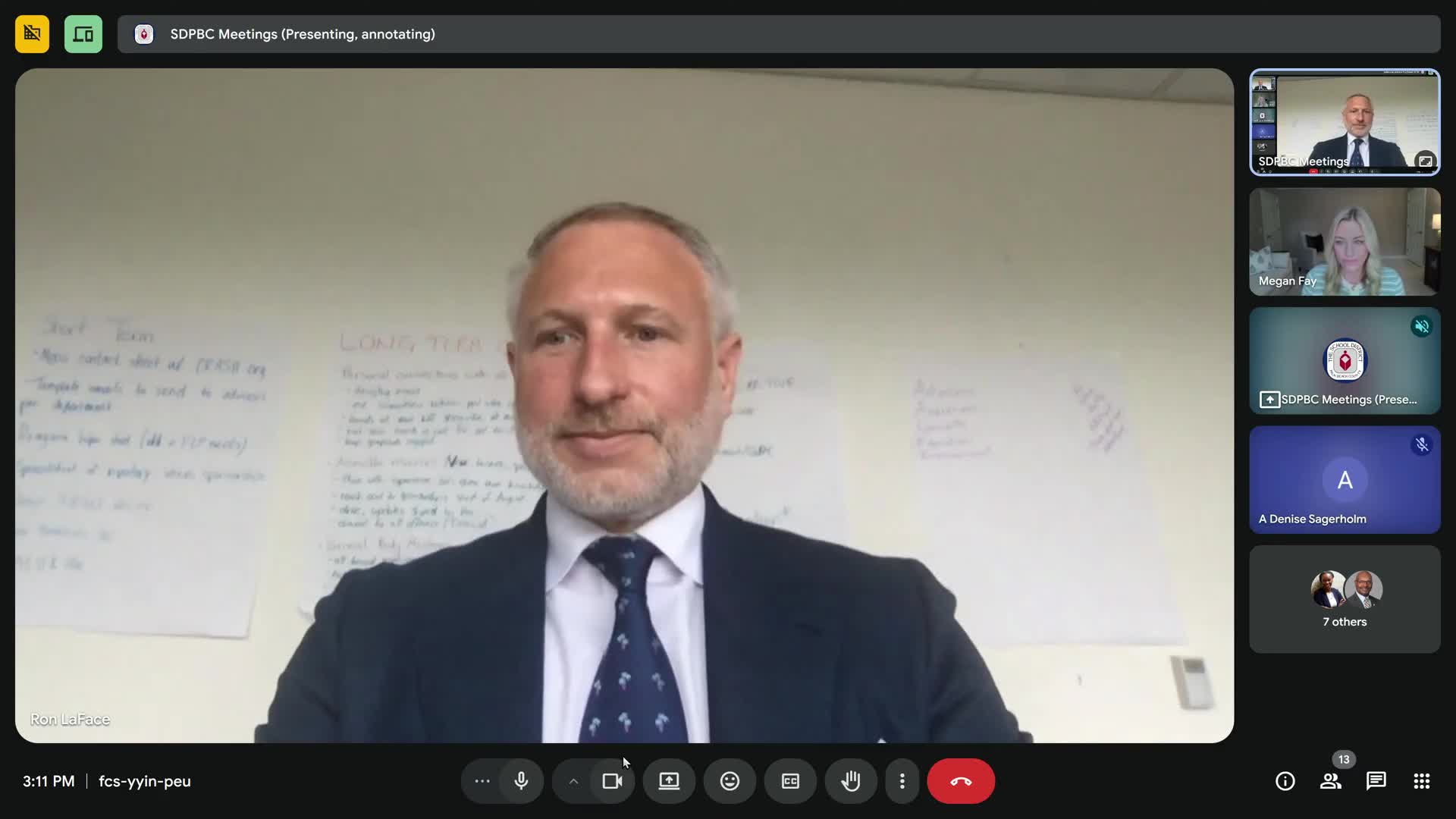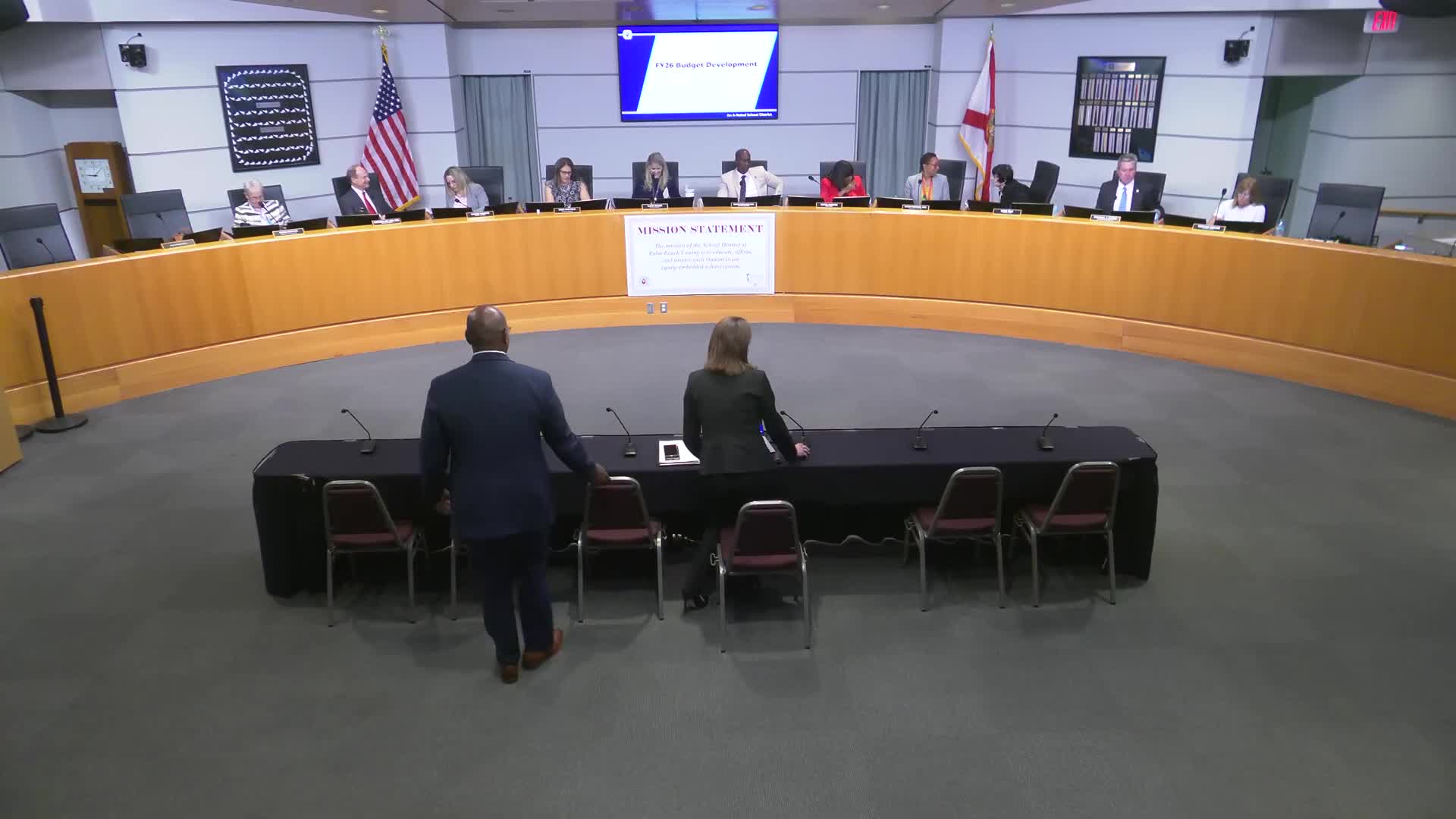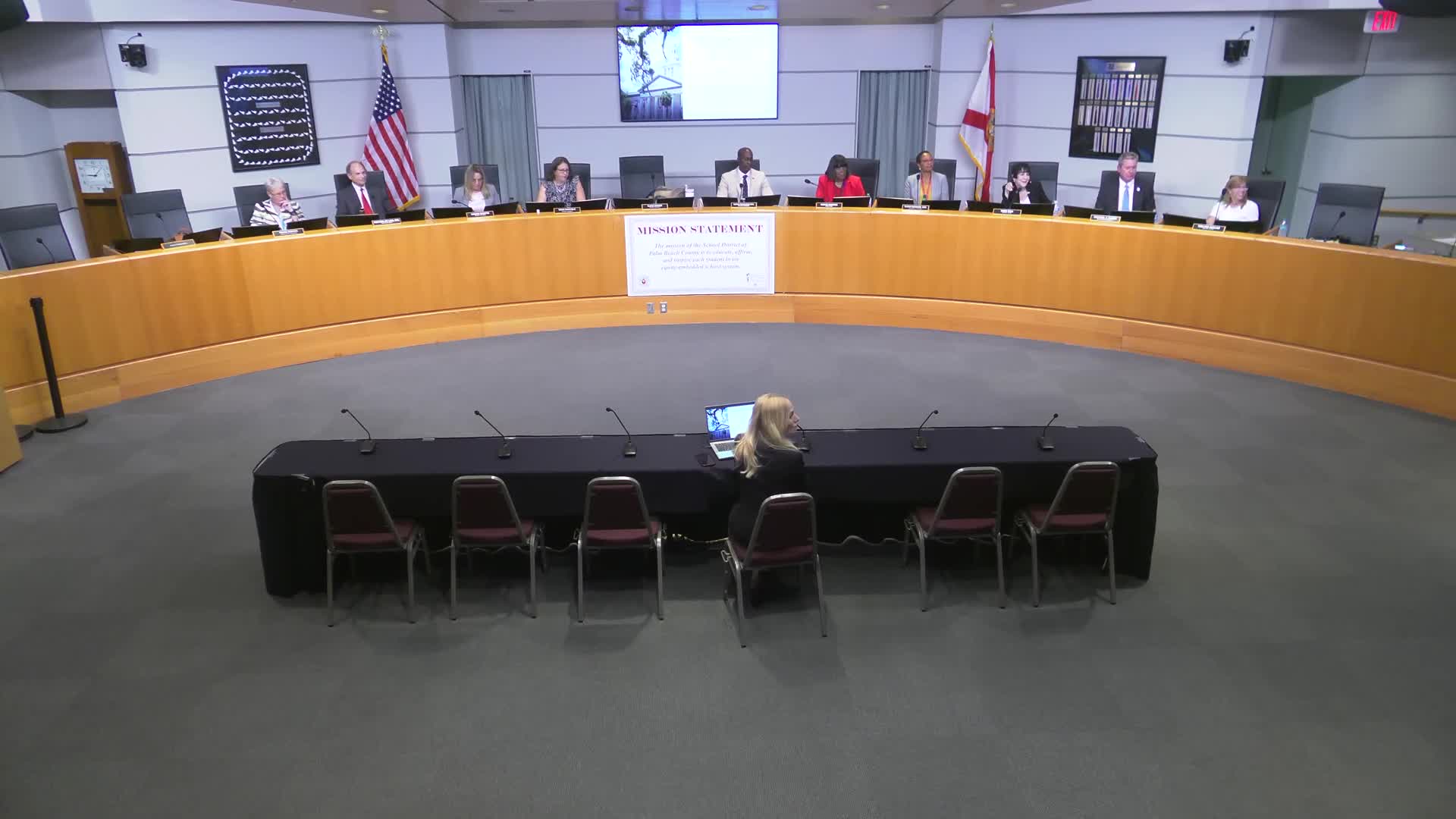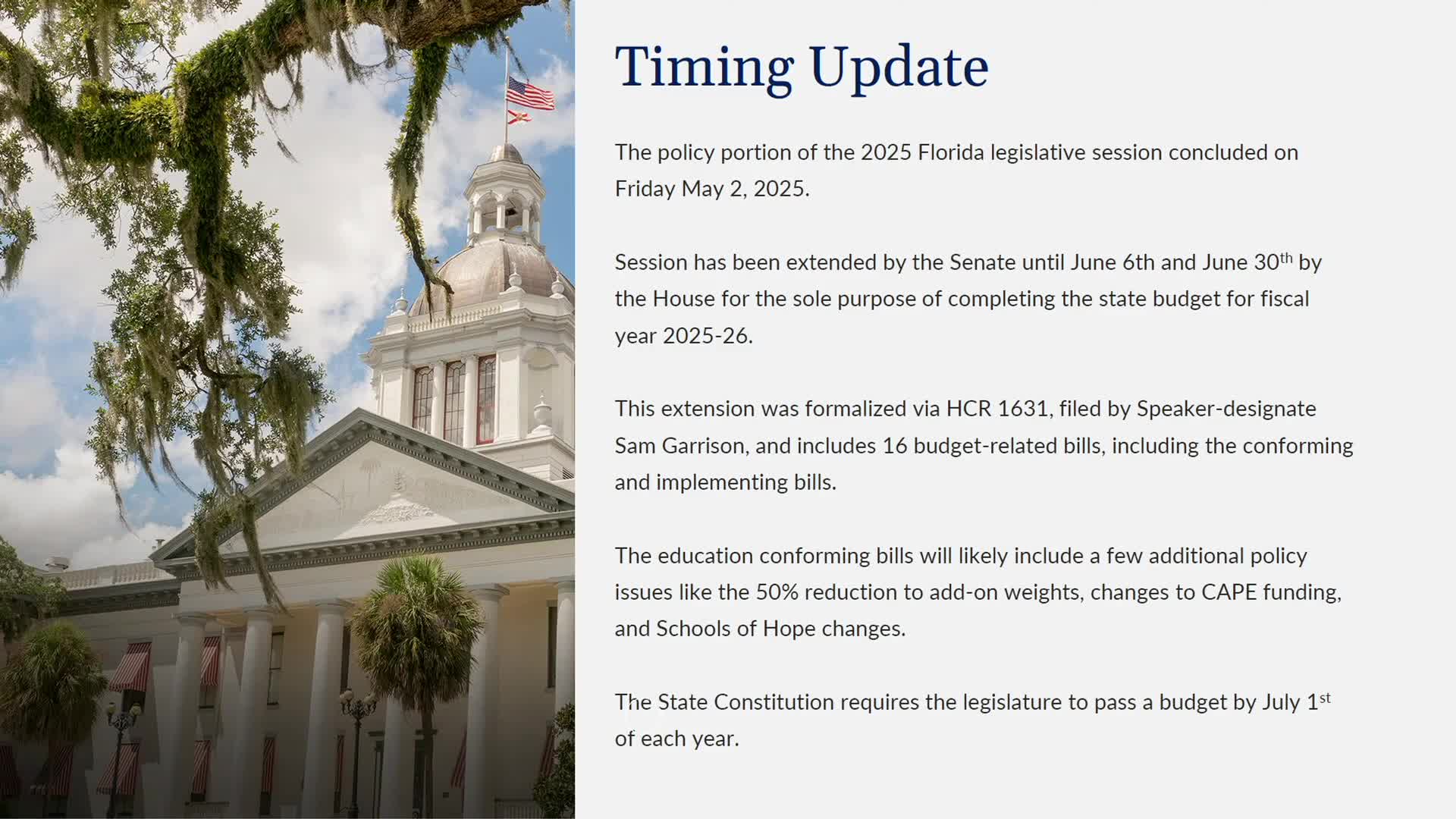Article not found
This article is no longer available. But don't worry—we've gathered other articles that discuss the same topic.

District officials recap 2025 Florida legislative session and bills affecting schools

Palm Beach schools brace for potential $40.9M shortfall; staff proposes offsets, holds salary increases

Palm Beach school board moves to revise DEI and purchasing policies after federal guidance

Community urges retention of broad disciplinary review team as board clarifies discipline policies

